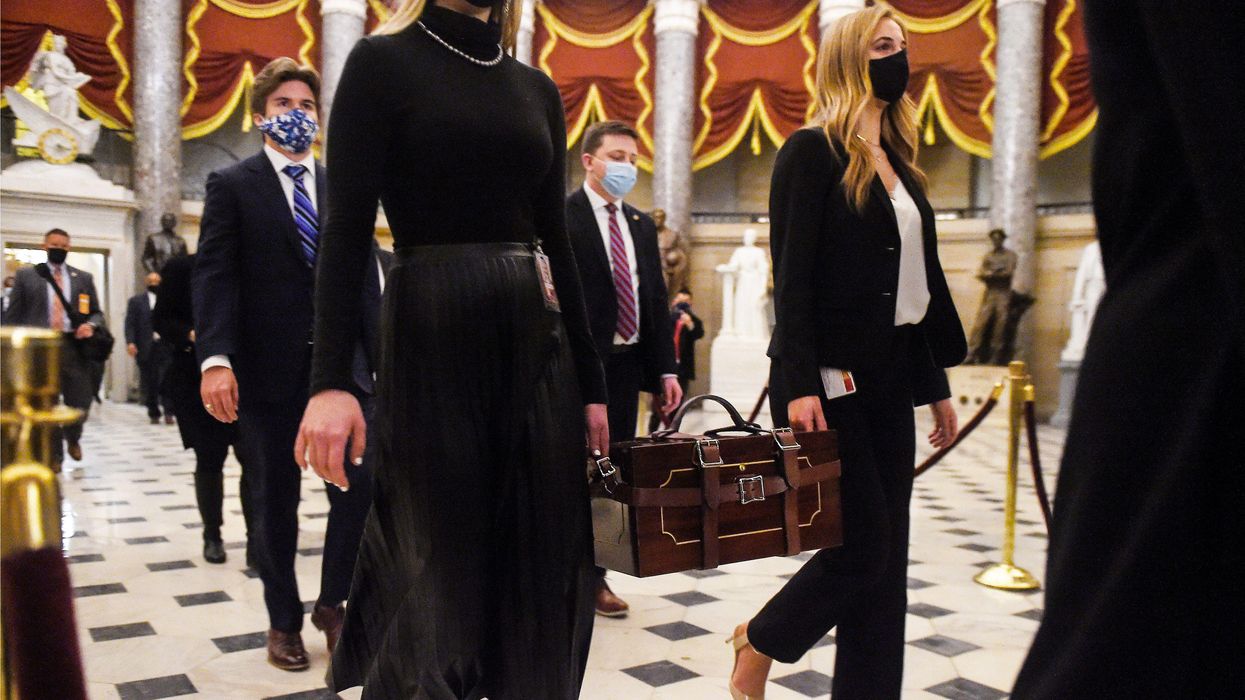Now that the 2020 election is over at last — with Thursday's unsullied affirmation, in the face of unprecedented challenges, that the Electoral College worked as designed — it's time to consider a fundamental switch.
The importance of states in our constitutional republic is well founded in terms of rights and authorities. One of the reasons for the establishment of the Electoral College was to ensure small population states do not get ignored when the nation considers whom to elect as president. However, in a democracy we also should acknowledge and recognize the importance of the overall popular vote.
The current system does not do that. There have been five times (and two in this young century) when the winner of the popular vote did not become president. There have been several different proposals for reform. Here is one more, which tries to recognize and balance the importance of states as well as the overall popular vote.
Winning the popular vote matters, but the amount by which it is won should also matter. The larger the victory, the more there is a legitimate claim for a mandate for the popular winner to be elected. This can be provided for by allocating some "popular vote electors" to the winner of the nationwide vote — and the more it is won by, the more popular vote electors the winner would get.
These popular vote electors would be full voting participants in a reformed Electoral College. If the popular vote margin of victory is less than a single percentage point, the winner would get three extra electoral votes. If the margin is between 1 and 3 points, the reward would be 9 electoral votes. A margin between 3 and 5 points would merit a bonus of 13 electoral votes — and a victory even more decisive would deliver a bonus of 15 electoral votes.
Since the votes of all people would matter to the reward of these electors, candidates would work to turn out their voters in all states, not just the purple battlegrounds. Republicans would be encouraged to vote in "blue" states and Democrats in "red" ones.
The representatives of the winning popular vote candidate would select the extra electors. Voter security in all states to determine the precise popular outcome would continue or be improved, and each secretary of state would have to send certified numbers to Congress before the bonus votes could be allocated.
If the national margin was as small as it was in the 2000 — 543,000 votes, or half a percentage point — the states' individual interests may outweigh the need to elect the popular vote winner. But the winner of the popular vote should still get some credit in the Electoral College, even if only a few votes.
Had the system been used in the contested election of two decades ago, since Al Gore had the popular vote edge he would have been awarded 3 more electoral votes. But he still would have lost to George W. Bush — by 271 to 269 electoral votes. Only if Gore had won the popular vote by more than a full point would he have become president with the help of the bonus electors.
In the more recent case where the popular vote winner still lost, the outcome would also not have been changed. Hillary Clinton got 2.9 million more votes from people in 2016, a 2-point edge over Donald Trump. While that would have entitled her to 9 more electoral votes, she still would have ended up with just 241 to Trump's decisive if narrowly secured 306.
And this year? Joe Biden's 4-point margin of victory would have led to his winning 319 electoral votes.
A constitutional amendment which awards some electors to the winner of the overall popular vote is appropriate, while allowing states to retain the number of votes they have now in the electoral college.
The approach may not have changed any recent outcomes, but it may very well change the future dynamics of campaigning. And it may impact some elections in the future. This system is by no means perfect, but it attempts to move the country to a fairer system while balancing competing interests.



















